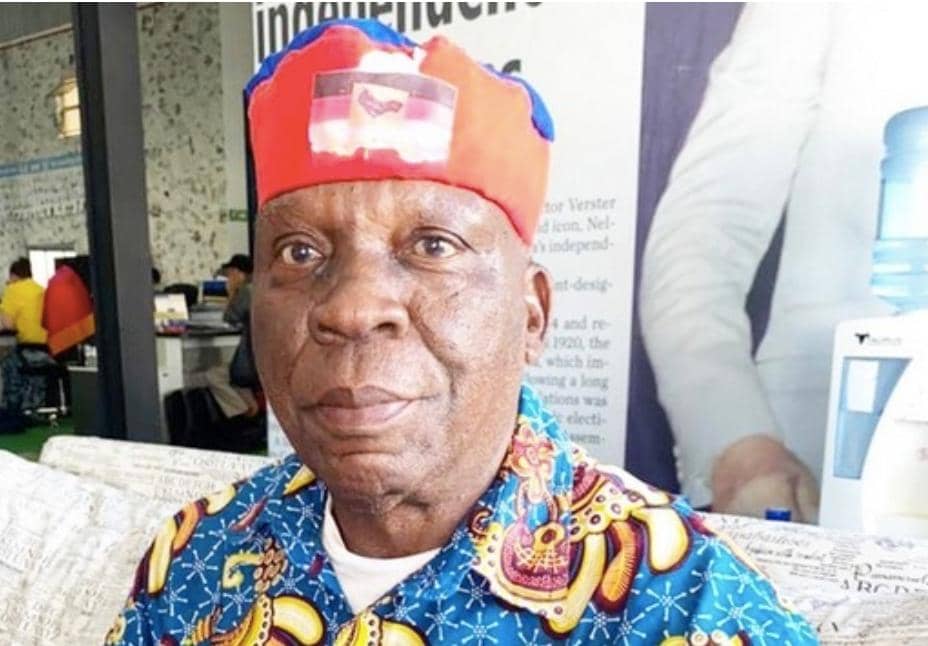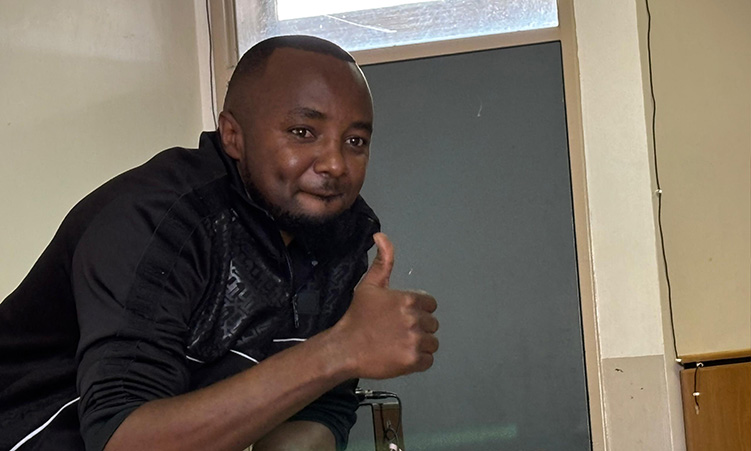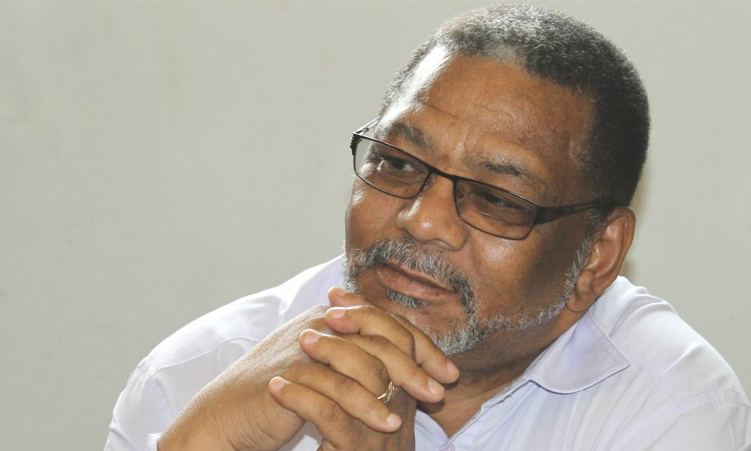FRONTIER MINE – Like many Congolese, Godel Mulamba made a living on the illegal trade in copper ore until the government banned the export of raw copper in March of this year.
Analysts say decades of mismanagement under former ruler Mobutu Sese Seko and a 1998-2003 war, which killed an estimated four million people, left Democratic Republic of Congo (DRC) in ruins. Young people like Mulamba engaged in the illegal trade in minerals, mainly as middlemen, to earn a living until Katanga’s governor Moise Katumbi suspended shipments to Zambia of raw cobalt and copper in March, saying the ores should be processed locally.The ministry of mines temporarily froze exports from North Kivu in April while new permits were issued to exporters.The new order left many young people without a form of livelihood, Mulamba said, but that is being changed thanks to new mines which are offering them employment.Mulamba, 29, a qualified metallurgical engineer from a university in Lubumbashi, was one of the Congolese who took advantage of a disorganised mining sector to earn some dollars by selling copper ore to ‘unlicensed’ dealers.But he now has formal employment thanks to the Frontier Mine Plc, a unit of Canada’s First Quantum Minerals, which has offered him a permanent job.”We have employed a lot of young people here and this is one of the tremendous benefits created for the local community,” Frontier mine general manager Sean Whittome said.Mulamba says his US$250 per month salary is modest, but he is happy with the employment security that comes with his job at the mine which has a 20-year lifespan.LIVING IN FEAR The Frontier Mine, on the border with Zambia, about 335 km north of Lusaka, has employed a number of local people from Lubumbashi, the DRC’s second largest city and Sakania, a small town of 20 000 people bordering the southern African country.Back in Lubumbashi, Mulamba always operated under fear as he was never sure when he would come into conflict with the law as Congo’s minerals were shipped out by mainly foreign traders who took advantage of a prolonged civil war.Analysts say the civil war made it impossible for the Kinshasa administration to organise mining of the vast central African country because rebel factions controlled some of the mineral-rich areas.The return of peace has created space for the government to reorganise mining and foreign investors have responded by investing millions of dollars in new mines, with the US$225 million First Quantum’s Frontier Mine one of the first.”Initially, I used to dig the copper ore, but later I started buying the ore from other diggers, which I resold to contractors,” the soft-spoken Mulamba told Reuters at the Frontier Mine.”There was more money in selling the copper ore than digging,” added Mulamba, who was not keen to disclose how much money he had earned per month from selling copper ore.”The money I earned was good enough as I was able to feed my family, but it was not sustainable,” he said.It became hard to support his family when the illegal trade in copper ore was blocked by the authorities.”After the government banned the export of copper ore, it became difficult to survive.I have a wife and one child and I also help my nine brothers with their school requirements,” Mulamba said.”One day I heard news about a new mine coming up and I travelled here to look for employment, which I fortunately found,” he said through an interpreter.BRIGHT FUTURE The salary and housing being constructed for miners at Frontier have made Mulamba enthusiastic and hopeful about a brighter future.”I love and enjoy my work in the flotation plant…I can describe my salary at Frontier as good because we have not reached full production and my supervisor has assured me things will get better when we reach full capacity.”For Whittome, miners like Mulamba, the local community and their families will benefit from the minerals on their soils.”This mine has tremendous benefits to the people (of Congo),” he said.”We have also taken major corporate social responsibilities to help the local communities and we have given the community US$100 000 for building a hospital.”The Frontier mine will improve roads and water reticulation for the local people, he added.Whittome said benefits also included payments of two per cent in mineral royalties to the Democratic Republic of Congo government.For the first time after many years, Congolese nationals can sit back and enjoy the fruits of their labour.”The war is over and now we have to work for our country to develop it,” Mulamba said.Congo exported more than 440 000 tonnes of copper in 1989 before a steady decline caused by the war and mismanagement.It controls a tenth of the world’s copper reserves.Nampa-ReutersYoung people like Mulamba engaged in the illegal trade in minerals, mainly as middlemen, to earn a living until Katanga’s governor Moise Katumbi suspended shipments to Zambia of raw cobalt and copper in March, saying the ores should be processed locally.The ministry of mines temporarily froze exports from North Kivu in April while new permits were issued to exporters.The new order left many young people without a form of livelihood, Mulamba said, but that is being changed thanks to new mines which are offering them employment.Mulamba, 29, a qualified metallurgical engineer from a university in Lubumbashi, was one of the Congolese who took advantage of a disorganised mining sector to earn some dollars by selling copper ore to ‘unlicensed’ dealers.But he now has formal employment thanks to the Frontier Mine Plc, a unit of Canada’s First Quantum Minerals, which has offered him a permanent job.”We have employed a lot of young people here and this is one of the tremendous benefits created for the local community,” Frontier mine general manager Sean Whittome said.Mulamba says his US$250 per month salary is modest, but he is happy with the employment security that comes with his job at the mine which has a 20-year lifespan.LIVING IN FEAR The Frontier Mine, on the border with Zambia, about 335 km north of Lusaka, has employed a number of local people from Lubumbashi, the DRC’s second largest city and Sakania, a small town of 20 000 people bordering the southern African country.Back in Lubumbashi, Mulamba always operated under fear as he was never sure when he would come into conflict with the law as Congo’s minerals were shipped out by mainly foreign traders who took advantage of a prolonged civil war.Analysts say the civil war made it impossible for the Kinshasa administration to organise mining of the vast central African country because rebel factions controlled some of the mineral-rich areas.The return of peace has created space for the government to reorganise mining and foreign investors have responded by investing millions of dollars in new mines, with the US$225 million First Quantum’s Frontier Mine one of the first.”Initially, I used to dig the copper ore, but later I started buying the ore from other diggers, which I resold to contractors,” the soft-spoken Mulamba told Reuters at the Frontier Mine.”There was more money in selling the copper ore than digging,” added Mulamba, who was not keen to disclose how much money he had earned per month from selling copper ore.”The money I earned was good enough as I was able to feed my family, but it was not sustainable,” he said.It became hard to support his family when the illegal trade in copper ore was blocked by the authorities.”After the government banned the export of copper ore, it became difficult to survive.I have a wife and one child and I also help my nine brothers with their school requirements,” Mulamba said.”One day I heard news about a new mine coming up and I travelled here to look for employment, which I fortunately found,” he said through an interpreter.BRIGHT FUTURE The salary and housing being constructed for miners at Frontier have made Mulamba enthusiastic and hopeful about a brighter future.”I love and enjoy my work in the flotation plant…I can describe my salary at Frontier as good because we have not reached full production and my supervisor has assured me things will get better when we reach full capacity.”For Whittome, miners like Mulamba, the local community and their families will benefit from the minerals on their soils.”This mine has tremendous benefits to the people (of Congo),” he said.”We have also taken major corporate social responsibilities to help the local communities and we have given the community US$100 000 for building a hospital.”The Frontier mine will improve roads and water reticulation for the local people, he added.Whittome said benefits also included payments of two per cent in mineral royalties to the Democratic Republic of Congo government.For the first time after many years, Congolese nationals can sit back and enjoy the fruits of their labour.”The war is over and now we have to work for our country to develop it,” Mulamba said.Congo exported more than 440 000 tonnes of copper in 1989 before a steady decline caused by the war and mismanagement.It controls a tenth of the world’s copper reserves.Nampa-Reuters
Stay informed with The Namibian – your source for credible journalism. Get in-depth reporting and opinions for
only N$85 a month. Invest in journalism, invest in democracy –
Subscribe Now!










